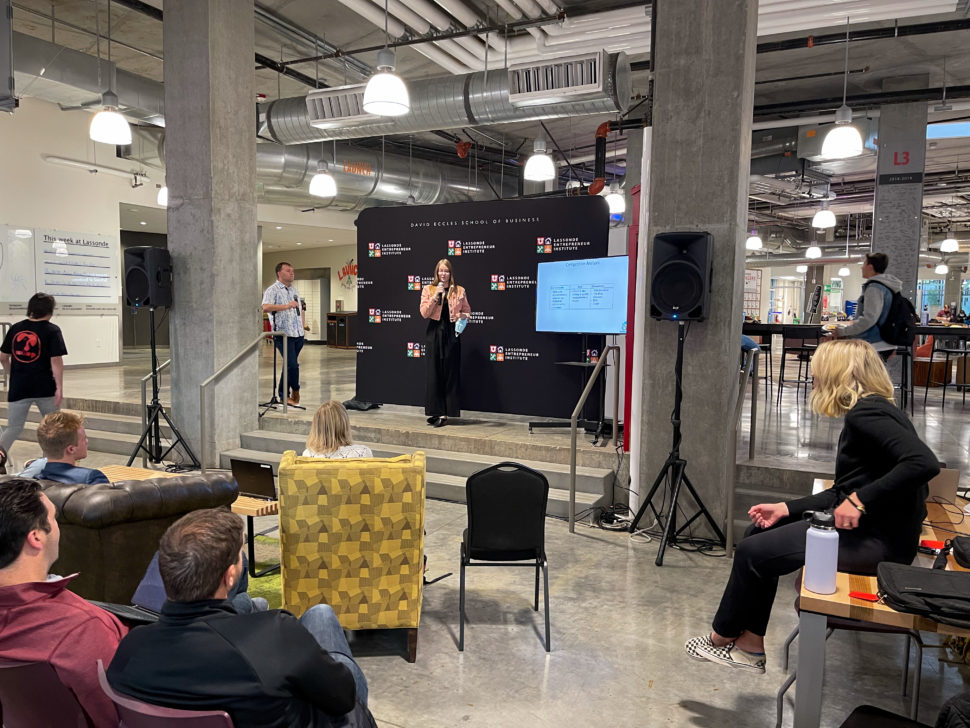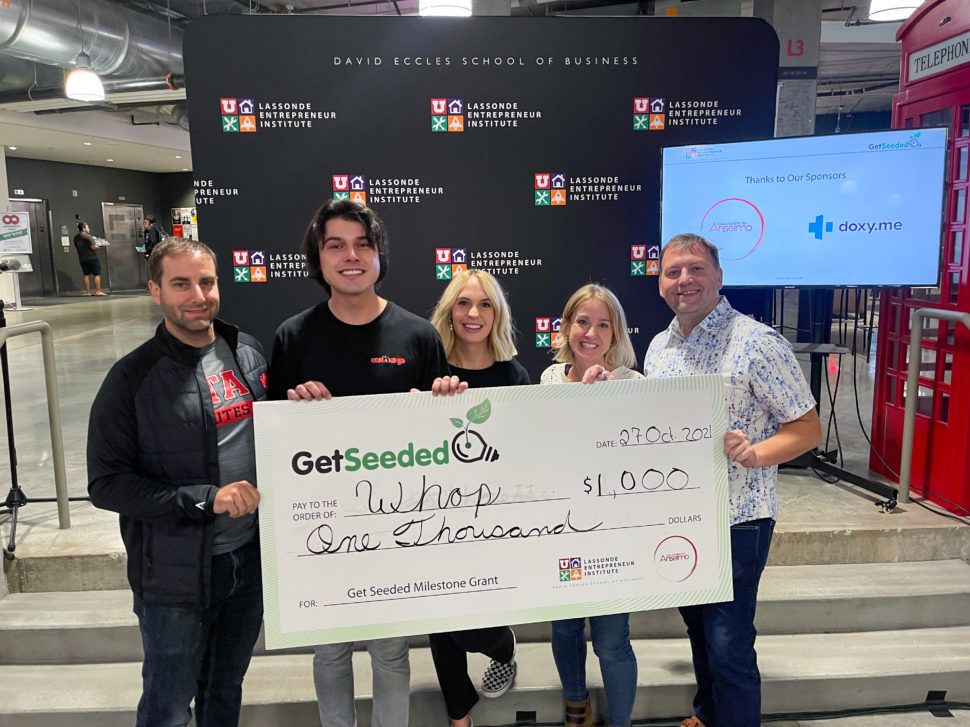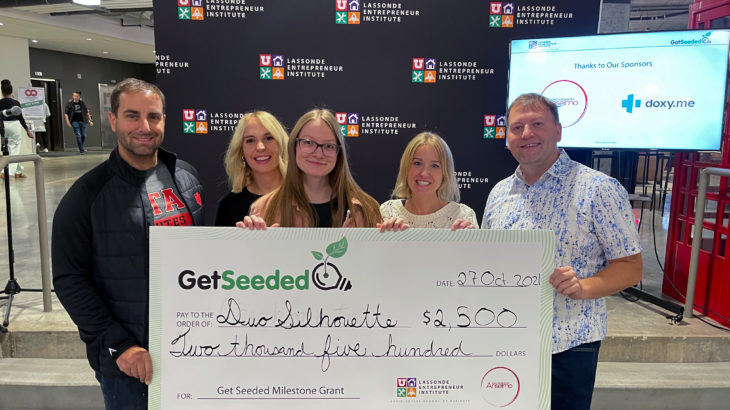Ten student startup teams received $9,800 in Get Seeded milestone grants in the second round of grants for the fall 2021 semester. This includes regular grants and microgrants for this period. See below for a list of teams and their product ideas.
The final event for the regular grants was hosted at Lassonde Studios. It included live startup pitches, free food, and public voting to see who received grants.
Get Seeded is a milestone grant funding program open to all college students in Utah. The first step is to apply online. All university students in Utah are welcome to apply for grants.
Students requesting more than $500 follow a three-step process, concluding at the final pitch event, where they pitch to an audience that votes on who gets funded. Students requesting $500 or less — called microgrants — are funded after a two-step process.
The program is managed by the Lassonde Entrepreneur Institute at the University of Utah and sponsored by Chad and Kristen Anselmo.
Learn more about Get Seeded and apply for a grant here: lassonde.utah.edu/getseeded.
Regular Grants

Duo Silhouette
Duo Silhouette (University of Utah) – $2,500
Duo Silhouette’s design idea is a digitally adjustable mannequin for seamstresses. Ideally, their goal is to have a product that would be compatible with an app that could link up with the mannequin for efficient measurement changes, but that could also be adjusted without the app. They came up with this idea because of their mother. In exchange for dance lessons, she made our studios costumes. She makes each costume custom to each person. They hope to make a mannequin that can like a silhouette for each person.

Checkmates
Checkmates (University of Utah) – $1,500
Checkmates is a platform that helps bridge the gap between the difficulties of academic performance and a desire to use their academic knowledge to guide others. Their focus is on creating a community of authentic learners and tutors that can help each other grow in a flexible and non-stressful environment. They have a peer-to-peer tutoring service that allows all communication to work through our website. Tutors will be paid $20 an hour, and customers will pay an undetermined amount starting soon.

Tribe
Tribe (Brigham Young University) – $1,300
Tribe is a mobile platform for team-based accountability and self-improvement. They help match people into teams of other people with the same goal so they can leverage each other for success by experiencing increased connection, effective accountability, and sustained motivation. Their current focus is on helping people who are working to overcome pornography use, but ultimately, they envision their platform as a service that enables all types of self-improvement.

whop
whop (University of Utah) – $1,000
Whop is an acronym for “we heart our pets.” They will create a box that is either for a cat or dog and that is personalized to the individual pet. It will consist of five items that are hand-selected using feedback provided when signing up along with the feedback we receive after each box. They will prioritize work with smaller businesses while also attempting to be as eco-conscious as possible.
Microgrants
Cortex Evolution (University of Utah) – $500
Cortex Evolution has a mission to make personal development more enjoyable, systematic, and effective. For one audience segment, they provide neuroscience-based learning and memory “brain coaching,” which will expand into unique, multimodal behavioral change programs. For another, they established a self-improvement community (the “reformers”), which algorithmically matches people with peers who act as inspiring mentors, supporters, and friends, effectively crowdsourcing to increase usefulness and profitability.
Catalyst Med (University of Utah) – $500
Catalyst Med is a team of fellows that completed the MIT Catalyst program. They have identified that there is a need for automated documentation of medication administration events in the emergency department. Current documentation methods are burdensome on the nursing staff and are prone to human error. Their goal is to develop a system that will eliminate errors associated with timing of documentation and will reduce the documentation burden on nurses so they can focus on caring for their patients.
Cecilia (University of Utah) – $500
Cecilia is an artist-connection platform. Cecilia is a way for local creatives of various art disciplines to connect with local clients and one another. It is a mix of Linkedin, Fiverr, and a portfolio specifically designed for artists. It aligns artists to network as well as search for gigs.
Chip in Golf (University of Utah) – $500
Chip in Golf has an idea for a golf ball with a tracker inside the ball that is paired to your phone and beeps when you get near the ball to help you find it easier.
Foodsrush (University of Utah) – $500
Foodrush’s product is an application that connects stores who have unsold food at the end of the day to consumers who are able to purchase the unsold food at a cheaper rate.
Kratos (University of Utah) – $500
The Kratos business idea revolves around the fitness industry. Their goal is to promote physical and mental health of all. Their company would provide a new innovation of fitness equipment that will maximizes the user’s potential.
Tribe (Brigham Young University) – $500
See above.



